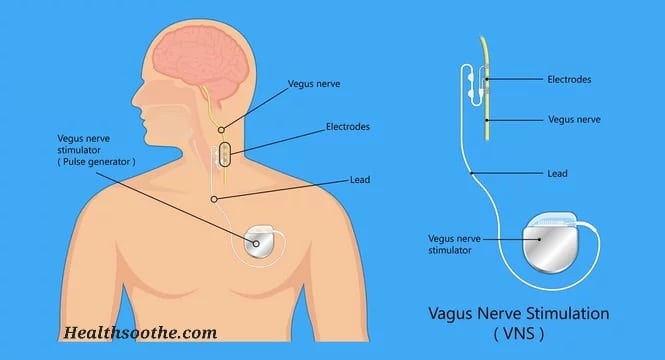Are you struggling with chronic pain that makes even the most minor tasks unbearable? Do you feel like you have tried everything, but nothing seems to work? If you answered yes, then you’re not alone. We know how difficult it is to find an effective solution to chronic pain relief. Luckily, there’s good news.
Researchers have found that Vagus Nerve Stimulation (VNS) can effectively manage chronic pain. Hence, in this article, we will look at the ins and outs of VNS and discuss some of its important aspects that you should keep in mind before committing to it.
Understanding Chronic Pain
First, understanding chronic pain is essential before diving into VNS. Usually, if your body experiences an injury or tissue damage, it is quite common to have a sensation of acute pain for a prolonged period. However, chronic pain is different from that. This type of pain can persist for over three months as it is often unrelated to any injury. Various factors can contribute to this multifaceted and complex issue, such as nerve damage, inflammation, psychological factors, etc.
What is Vagus Nerve Stimulation?
The vagus nerve is one of the longest nerves in the body, running from the brainstem to the abdomen. It branches off to various organs along the way. It regulates many bodily functions, including heart rate, digestion, and inflammation. VNS involves using a small device implanted under the skin in the chest, which is connected to the vagus nerve in the neck. The device delivers electrical impulses to the nerve, which regulates its activity and other bodily functions.
Benefits of Vagus Nerve Stimulation for Chronic Pain
Vagus nerve stimulation is a safe and effective way to improve overall health and wellness. You can use vagus nerve stimulation at home with the help of specialized devices, or you can employ simple relief techniques such as deep breathing and humming.
The benefits of vagus nerve stimulation for chronic pain are:
- Reduced need for medication
- Chronic pains such as fibromyalgia, migraine, and neuropathic pain can be treated with VNS.
- Mood and quality of life can also be improved.
- VNS is non-invasive and reversible.
- It can be removed if it isn’t practical or has severe side effects.
- Clinical trials report few serious adverse events.
The Science Behind Vagus Nerve Stimulation for Pain Relief
Specialists are still studying the exact mechanisms through which VNS provides chronic pain relief. But there are several theories. Electrical stimulation activates inhibitory pathways in the spinal cord. As a result, it can reduce pain signals transmitted to the brain. Another theory is that it can modulate the activity of the locus coeruleus. A brain region involved in pain processing and stress response. It also shows VNS’ anti-inflammatory effects. It may benefit inflammatory diseases like rheumatoid arthritis.
Vagus Nerve Stimulation Devices
There are various VNS devices on the market. It contains the VNS Therapy System by LivaNova and the GammaCore by ElectroCore. These devices differ in their design and functionality. But they all involve implanting a small device or generator under the skin and leads that deliver electrical impulses to the vagus nerve. A healthcare provider can program the devices. After that, the provider tweaks the stimulation settings to match each person’s needs.
Vagus Nerve Stimulation Procedures
It is helpful to perform anesthesia before implanting a VNS device. During the procedure, a small incision will be made in the chest and neck. The leads are attached to the vagus nerve in the neck, and a generator is attached to the chest by the skin. Most patients can go home the same day or the next day after the procedure. The device should be turned on after implantation. Now, it gradually increases stimulation over time. And the process is repeated until the maximum level is reached.
Risks and Side Effects of Vagus Nerve Stimulation
VNS has some risks and potential side effects like any other medical procedure. These include infection, bleeding, vocal cord dysfunction, and device malfunction. It is also possible to experience side effects such as hoarseness, coughing, or nausea. However, these side effects are generally mild. It can be managed by adjusting the stimulation parameters. So, discuss the risks and benefits of VNS before moving on with the procedure. If you want to know whether it’s right for you, consult with a healthcare professional.
Success Stories of Vagus Nerve Stimulation for Chronic Pain
Many individuals have experienced significant chronic pain relief because of VNS. They were able to improve their quality of life thanks to this procedure. More than 60% of chronic pain sufferers were found in previous studies. And after receiving VNS, they reported a 50% reduction in pain. Moreover, people with fibromyalgia found that VNS reduced fatigue, pain, and depression.
Additionally, chronic pain sufferers provided many anecdotal reports stating they were experiencing a better quality of life. To add to the point, people suffering from treatment-resistant depression also found relief using VNS. VNS has provided relief to these patients after years of failed treatments.
Conclusion
Vagus nerve stimulation can benefit chronic pain sufferers as many patients have not found relief from other treatment forms. However, it may not work for everyone. On the other hand, it could reduce medication use and improve quality of life. Our research into VNS may uncover even more benefits and applications in the future. Chronic pain relief is worth discussing if you are suffering from it. You must discuss VNS with your healthcare provider to see if it suits you.


